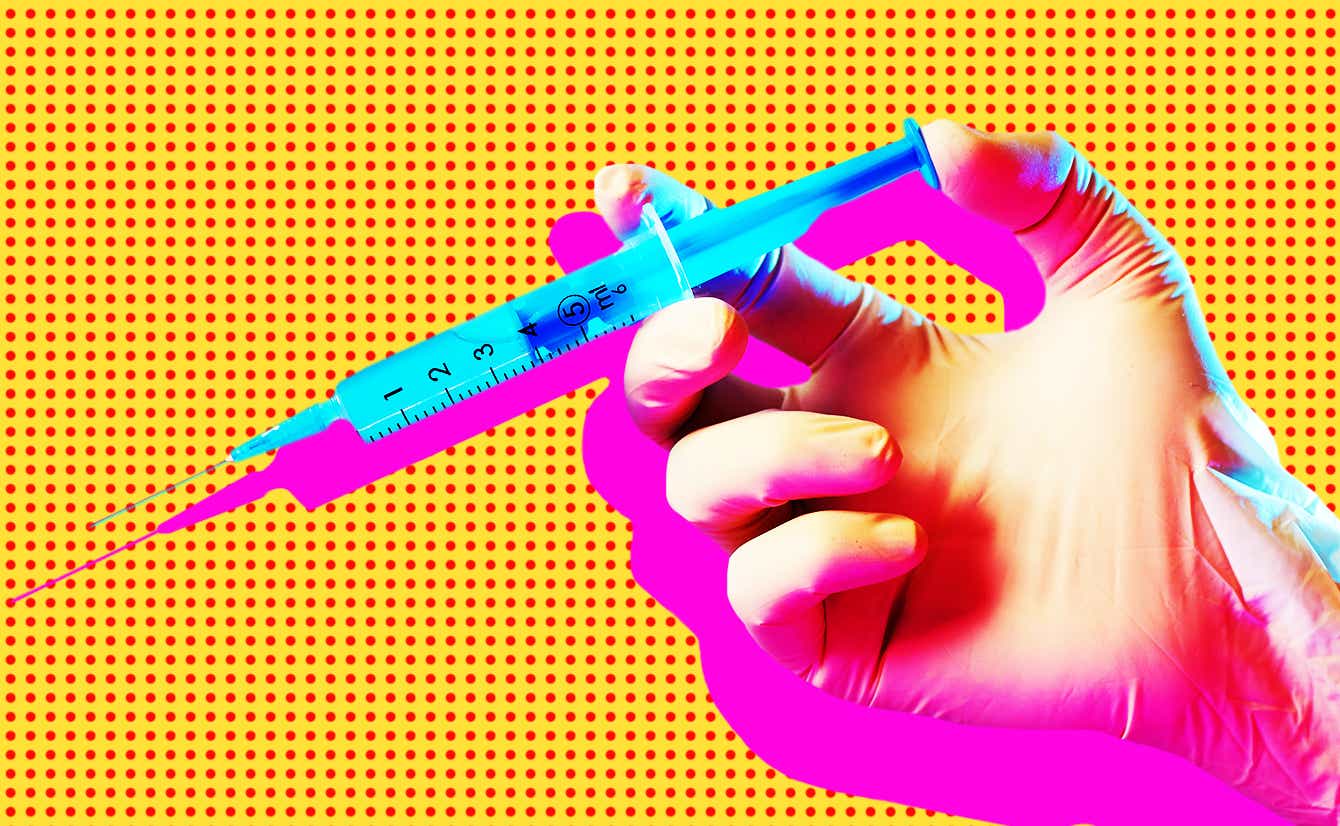The Food and Drug Administration gave formal approval Monday to Pfizer's Covid-19 vaccine, making it the first coronavirus shot to receive full regulatory clearance from the government.
"If you're one of the millions of Americans who said that they will not get the shot until it has full and final approval of the FDA, it has now happened," President Joe Biden said. "The moment you've been waiting for is here."
Until now, each of the different formulations of the Covid-19 vaccine being distributed in the U.S. had met the FDA's rigorous standards to be approved for emergency use. But now Pfizer is the first to go beyond that, and it's been fully cleared as safe for use in people aged 16 and above. "The public can be very confident that this vaccine meets the high standards for safety, effectiveness, and manufacturing quality the FDA requires of an approved product," said acting FDA Commissioner Janet Woodcock.
Here's what you need to know about this major development, along with some insight from Brooklyn-based physician Dara Kass about what it means moving forward.
What was the process for FDA approval of the Pfizer vaccine?
After more than 44,000 inoculated people were studied for six months, Pfizer submitted a 340,000-page application for approval to the FDA (that's more than three times the size of its application for emergency use, which totaled 110,000). From there, the agency spent 97 days reviewing it, with staff working "night and day" to get through it as quickly and efficiently as possible.
Peter Marks, director of the FDA's Center for Biologics Evaluation and Research, said those staffers' tireless work made it possible to get through the process much faster than the FDA average. "We completed this in about 40 percent of the normal clock time for a submission of this magnitude," he said.
Dr. Kass told us the pandemic in general and vaccine approval specifically has been a real challenge because of the historically limited bandwidth of even our most important health care agencies.
"The FDA, the CDC, all of our public health infrastructure was not built to have to work this furiously for this long on this many fronts," she said. "We have underinvested in public health and health care for generations, just like we underinvested in infrastructure, and so I think this is a lesson to us to have to staff up all these places so we have the resources to do the right job."
Will more people get vaccinated now that the FDA has signed off?
Dr. Kass told KCM she thinks more Americans will get a shot now that the Food and Drug Administration has officially approved Pfizer’s vaccine, but in general, they’ll likely be motivated less by personal choice than by how businesses respond to the FDA’s sign-off.
“The full approval is much more powerful in getting organizations to mandate vaccines,” Dr. Kass said. “There are people who are not vaccine-reluctant or anti-vax, but they are waiting for something to incentivize them to do it. For them, it’ll be their employer, it’ll be some recreation facility, it’ll be something that's mandating it for them to do something they want to do. And [FDA approval] will incentivize those places to require vaccination.”
That is certainly President Biden's hope.
"If you're a business leader, a nonprofit leader, a state or local leader who has been waiting for full FDA approval to require vaccinations, I call on you now to do it," Biden said Monday. "Do what I did last month — require your employees to get vaccinated or face strict requirements."
Among the latest to do so is The Pentagon, which announced Monday Monday that the country's 1.4 million active-duty service members will be required to get the vaccine. New York City's mayor is also mandating the shot for all Department of Education staff in public schools by Sept. 27 — with no alternative to avoid the vaccine by submitting to weekly Covid testing.
What about FDA approval for the Moderna and Johnson & Johnson vaccines?
"The FDA is moving as fast as it can while still making sure it follows the integrity of its job," Dr. Kass said. "And so these questions about when the FDA will approve Moderna or J&J, or when it's going to approve for 5- to 11-year-olds — it's very hard to predict answers for that."
She emphasized that these approvals are on the way, but it's just a matter of how much time it takes to so do thoroughly and properly. "The bottom line is that they are coming," Dr. Kass said.









